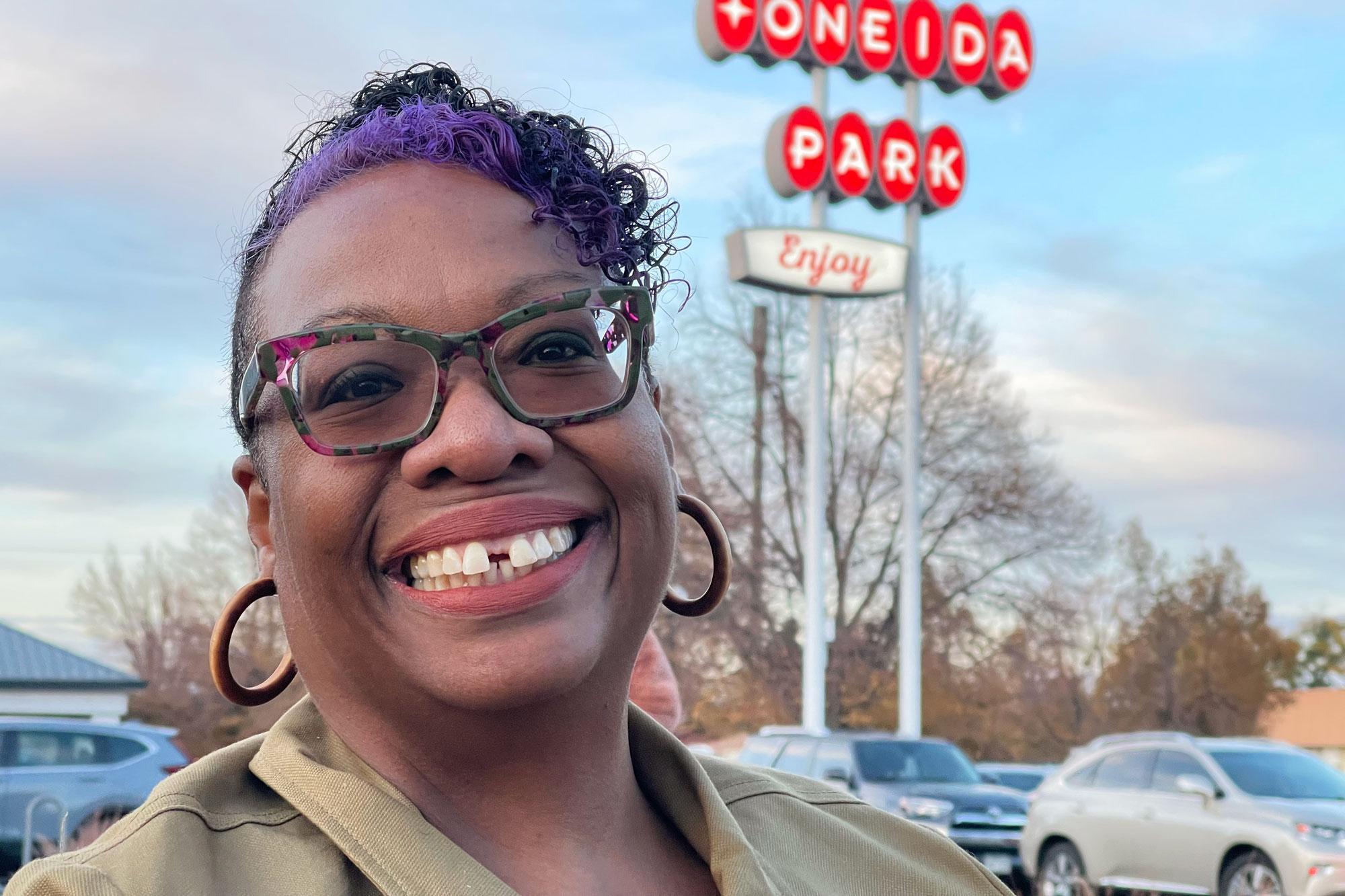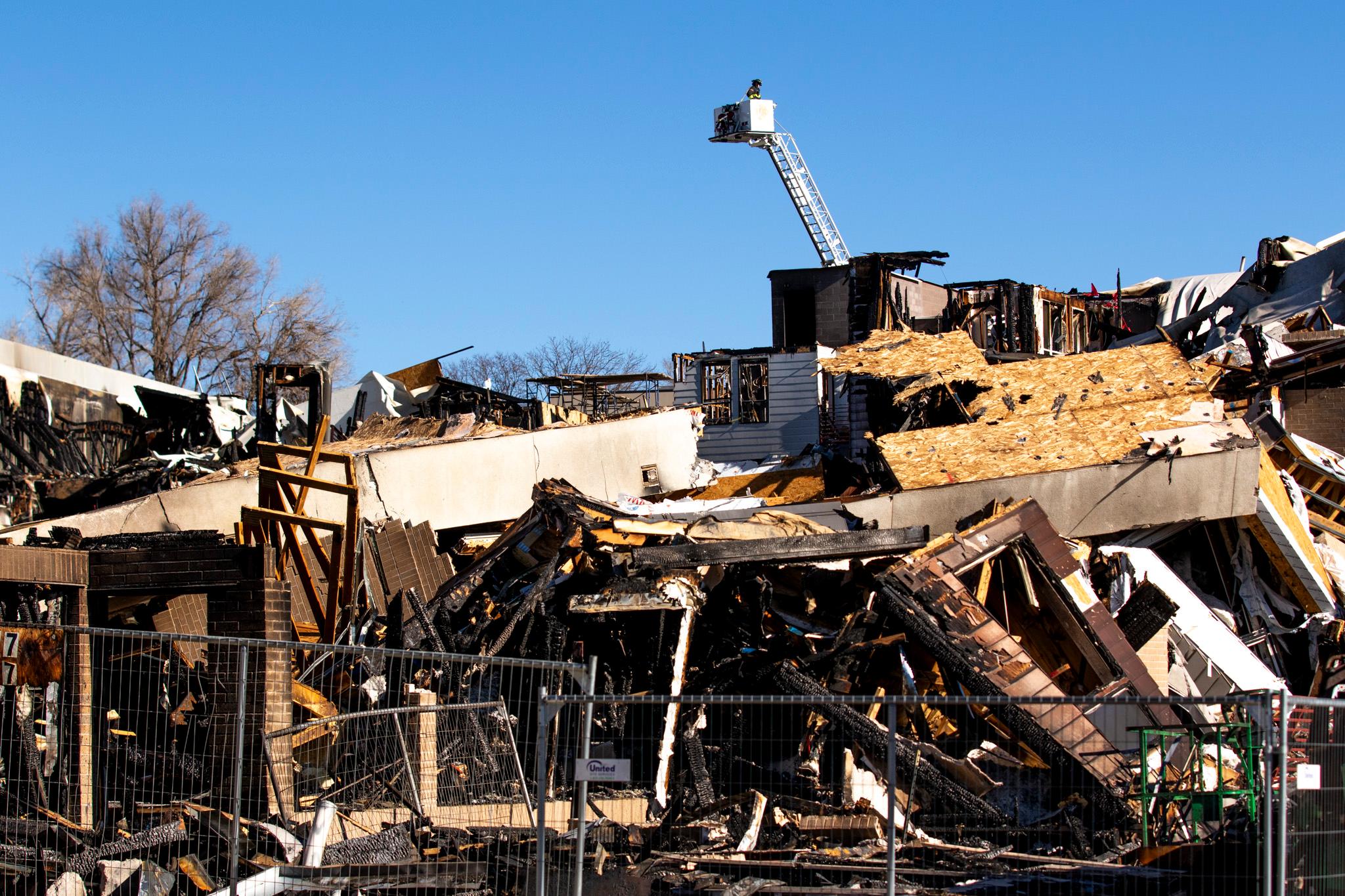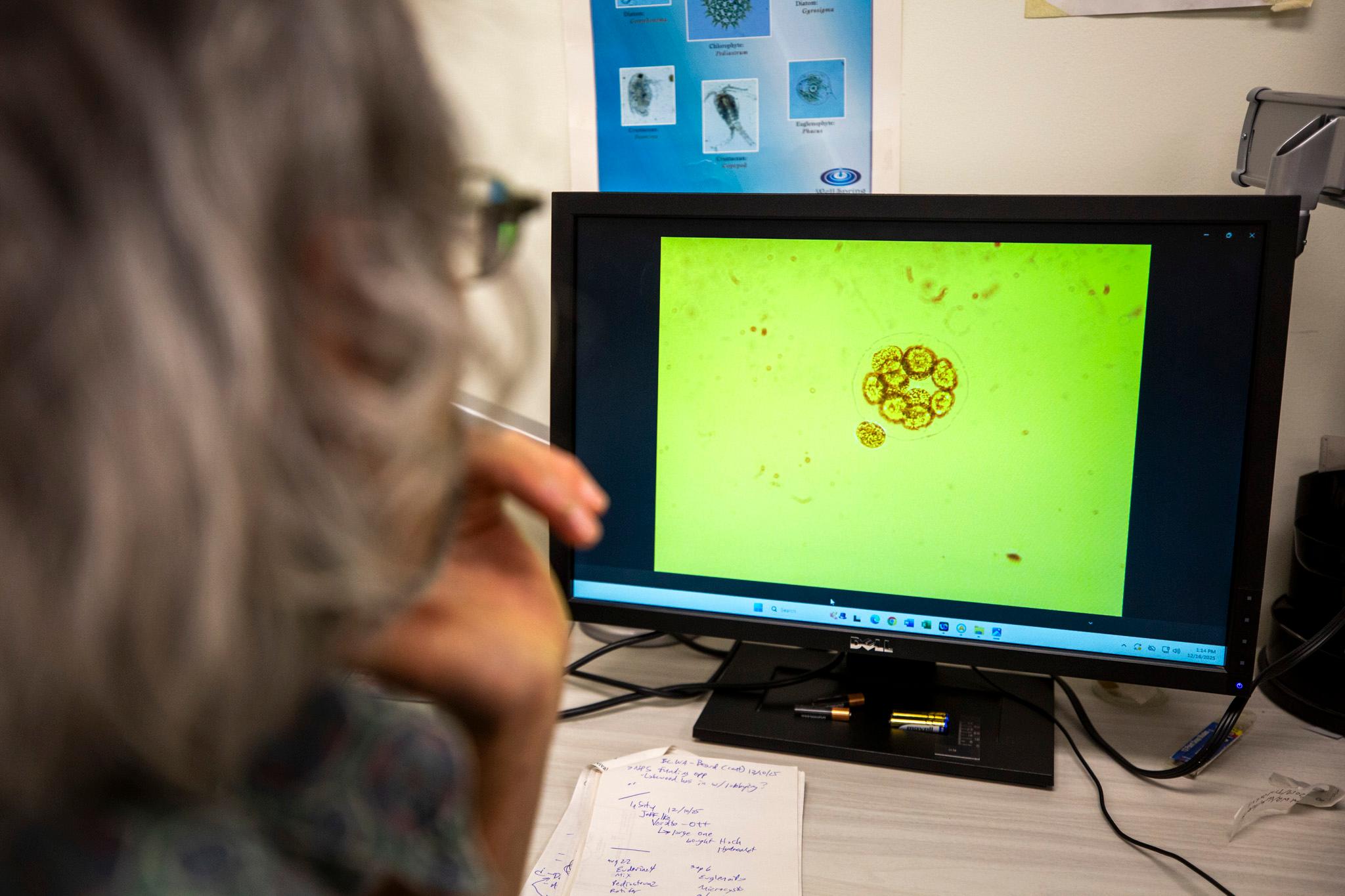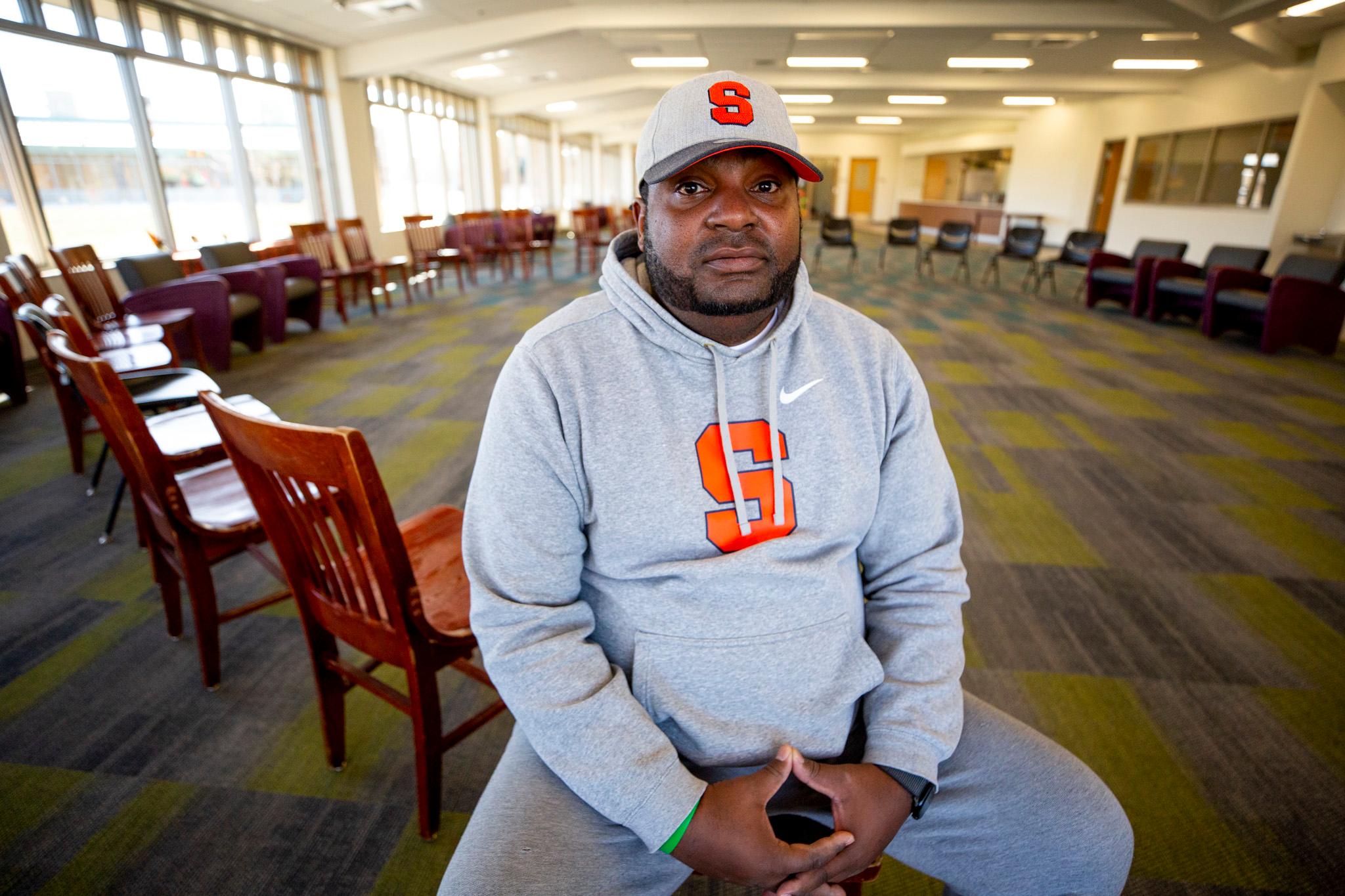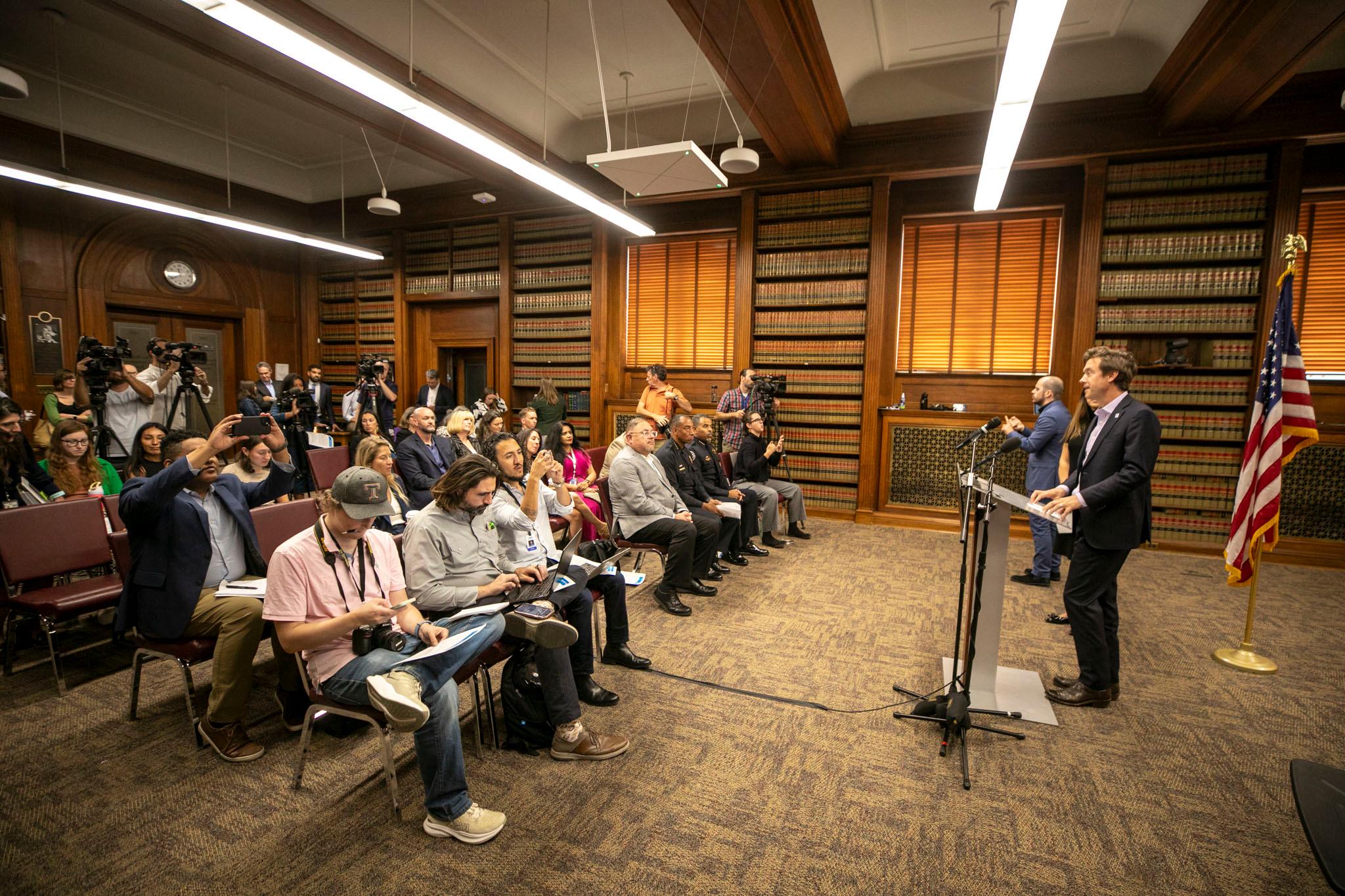On a warm November day, Edith Fenton frets about money on a concrete bench at the Oneida Park shopping center in Park Hill.
She’s surrounded by restaurants — Torpedo Coffee, Illegal Pete’s, DANG Soft Serve. But she has nothing in her hands but her purse.
For the past two years, she’s been out of work, recovering from cancer. Her husband has been hauling baggage 80 hours a week for Southwest Airlines. One union salary isn’t enough for the couple to get by.
Fenton lives in a small house in working-class Aurora, across the street from the Denver border. Over 16 years, the couple’s home payments have risen from $950 to $2,000.
The price hike coincided with the rise of the nearby Central Park neighborhood from the prairie-dog-infested dust where the Stapleton Airport used to be. Good schools, shopping centers and high-end housing meant higher property taxes for all.
These days, everything’s expensive. Gas. Public transit. Medical bills. Credit card debt. Food.
Fenton and her husband are not alone. People living in the Denver metro pay a higher cost of living than others around the country. More than 70 percent of Coloradans worry they can’t afford to stay in the state. Nearly 90 percent worry about the cost of living.
Her husband’s car is broken down. They can’t afford to replace it.
The couple leaves King Soopers with a $400 grocery bill. At Costco, they regularly spend $600.
“I’m vegetarian,” she says. “We’re not even buying meat.”
While Fenton is looking for work, she has found one answer to her economic woes on her kitchen stove. There she cooks up vegan self-care products with filthy names. Skank Bar Soap, Hoebag Sensitive Skin All Natural Body Wash and Twatwaffle Brown Sugar Espresso Body Scrub.
Two years ago, after her cancer diagnosis, she left her job teaching English to immigrants at the nonprofit New American College.
Fears of mass shootings and constant lockdowns chased her out of education. Her husband told her shouldering the stress while living with cancer just wasn’t healthy, to not worry about the money.
Now, her cancer’s in remission, and she’s looking for work. She’s too afraid to go back to the classroom.
“Nothing is paying,” she says.
Basking in apocalyptically warm weather, she worries she’ll never break out her winter boots. Why bother? The snow doesn’t fall like it used to.
Cities are flooding. Pollution is high. None of it’s lost on her.

Fenton knows she and her husband are doing better than many — and she tries to help where she can.
As her body fought off cancer, she carted new immigrants to doctor’s appointments, the grocery store and the airport. She helped them build a life, even as her future was uncertain.
Meanwhile, Fenton wonders how she and her husband will stay fed and sheltered. The math is simple. The struggle’s hard.
Fenton came from a family of postal workers. She wanted to avoid that path — now it’s not even an option.
The post office used to be a stable job for Black people, Fenton said. If you couldn’t find another job, you could always work at the post office. It was a fallback she wanted to avoid.
So Fenton went to college. With a bachelor’s degree in English, she graduated summa cum laude. Then she worked for a decade as a paralegal and another as an English teacher.
She has the experience on her resume, but finding work is proving hard. She’s applied for government jobs and had no luck. There’s always the post office, right?
These days, she sees mail carriers wear “miners’ lights” on their heads because they’re working past 9 o’clock at night just to finish their shifts. The job looks worse than it once was.
Despite all that, she explored postal work. When she heard the base salary, she backed out. The math didn’t work.
“I always feel like the rich people have no frame of reference,” she says. “I guarantee you none of them know how much a stamp costs.”
Seventy-three cents.
Fenton’s debt is mounting.
“My mortgage keeps snowballing up because of the property taxes,” she says. “We never have extra money.”
During her cancer recovery, the couple fell behind on home payments. They negotiated with their lender to defer their mortgage for three months until she could find work.
“It’s been two months, and we have not gotten ahead,” she says. “Nothing. Period.”
They owe the state of Colorado tax money. They owe the Internal Revenue Service tax money. They owe credit card companies money.
“They say our house is worth three times what we paid for it,” Fenton says. “But my God, the taxes.”
She and her neighbors have protested the tax increases. Futile.
Fenton counts her blessings. She’s grateful she doesn’t have kids who need clothes they grow out of in six months.
“If we had kids, I don’t know how we would make it,” she says.
Slowly, she’s figuring it out. With soap.
Fenton started making soap in her kitchen during COVID — concoctions of shea butter, cocoa butter, mango butter and avocado oil. At first, she gave it away to neighbors, family and friends. Half a year ago, her girlfriends convinced her to start selling her products at farmer’s markets.
Colorado’s dry. The product worked. But people weren’t buying her Rosemary Soap.
“No one cared it was vegan, super moisturizing,” she says.
So she started branding her health products with vulgar names. She dubbed her most popular, a four-butter blend with eucalyptus and menthol, Pendejo.


“It’s not for your disco stick or your yoohoo,” she says.
That didn’t stop a customer from using it on his disco stick.
“I liked it,” he told her.
“Well, if you like it, I love it,” Fenton responded. “We don’t judge here.”
Now she sells her crudely named body products at night markets, adult events and LGBTQ fundraisers where she splits the profits.
She called her store Snarky Witch Soaps. She has an Instagram page and a website.
“It makes enough money where I can buy gas,” she says. “I can get my nails done. I'm not stressing my hubs out over little things that make me feel pretty. I don’t want to be poor and look like the troll under the bridge … Can I eat beans and rice and get my nails done? “
Fenton doesn’t know anyone who isn’t struggling — really struggling.
“You can’t be depressed about it,” she says. “It’s a gorgeous day. Is it a nice day? You know, it’s a nice day, but is it supposed to be a nice day? It’s November. Global warming. It’s 61 degrees and whatever. I’m out here looking cute, none of my winter stuff.”
She takes her wins where she can get them.
Fenton’s husband spends $10 to ride the bus and the train to and from his 80-hour week job. Two hours there, two hours back.
One night, he returned grumbling.
“The bus driver stopped for this homeless man — not at a bus stop,” Fenton remembered him saying. “He just opened the door and let this man on because he’s homeless. Oh, if I’m homeless, I don’t have to pay?”
“Now, come on,” she had said. “Let’s have a little perspective here.”
“Yeah, after I said that, I felt bad,” Fenton’s husband replied. “I looked at the guy, and he’s truly, truly homeless. He’s not new homeless. He’s not the nouveau homeless. He’s not those emo-looking kids.”
Fenton’s husband said he could tell the man had mental health issues. He looked grimy — like he had spent years on the streets.
“Baby,” Fenton replied, “this is his living room for as long as he’s allowed to have it. He’s going to be going on this bus back and forth, literally nowhere in life and nowhere on this bus, whereas you’re going to work.”
“Yeah, OK,” he said, thinking of their working car, food, clothes and shelter. “I’ve got to count my blessings.”
The couple’s blessings are many, Fenton says. And for now, they’re not suffering like the man on the bus — just struggling.
“You just got to hang on, because that could be me next week, next year,” Fenton says. “It really could.”
For now, with her soap company bringing in some money, she can still get her nails painted. The mortgage and the bills, she’ll figure out.

